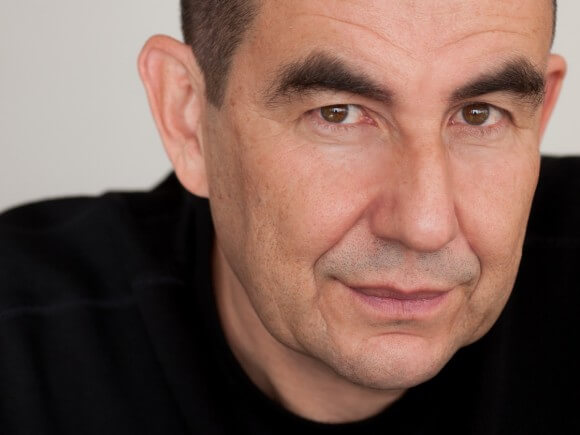
Ari Shavit wants to end the occupation. The Haaretz senior columnist and author of My Promised Land is a longstanding figure of the Israeli peace camp. He’s an archetype for what is referred to as “the Left,” a dwindling breed of earnest defectors from the occupation machine, an acknowledger of the crimes of 1948—what Shavit calls Israel’s “tragedy” in his book’s sub-heading.
Shavit’s take is a bit doom-laden for me. A few days ago +972 Magazine put together a damning list of Shavit excerpts from 2006 to 2012 where he anticipates Israel is on the brink of an End of Days battle with the Palestinians. It totals 31 entries . I could add one more to the list, his November 18th interview on Fresh Air with Terry Gross. Shavit said if the current round of negotiations fails, it will end in an Intifada akin to the last set of talks.
‘So we have this repeating process where there are high expectations. The Palestinians and Israelis are singing the song. Nothing happens. Then there is a clash, then there is a crash, and then there is violence.’
In the end, it seems Shavit doesn’t know Palestinians. In 2011 in the lead up to the first and failed round of United Nations non-member observer status, Shavit thought statehood would lead to another clash on the ground with Israelis. But the statehood bid came and passed and when it resurfaced the following year, Palestinians did protest and shots were fired, but not at the Israelis as he predicted. Instead Palestinian refugees demanded subsidies from the Palestinian Authority (PA). The UN statehood bid is the key to understanding the Palestinian political landscape today. It brought to gunfire a rift in Fatah, those who supported the bid from the upper class, and the refugees who were against it, and Shavit missed the story.
I’m not prepared to throw out Shavit’s analysis all together. Shavit may not know Palestinian politics, but he is tapped into the establishment Israeli left. He says Israel’s failure was producing a framework where negotiations could only solve the conflict through one photographed handshake, or keep the charade going indefinitely. While this totally unrealistic peace process never gave the left a real chance to solve the conflict, enormous political space was allotted to the extreme-right even though they only amount to 10% of Israel’s population. This radical voting bloc, whose leader open calls for ethnic cleansing, now has hold over the governing coalition. Shavit sees this as Israel on the brink, or has already knee-deep in a settler takeover of mainstream Israeli politics.
On this line, Shavit is an expert offering expert analysis. He knows Israel. He understands the power players in Israel. He’s interviewed Benjamin Netanyahu, a rare feat among Israeli journalists, and he has a wealth of establishment left experience through his time at Haaretz and Peace Now. He’s well-positioned and influential. And besides, Shavit’s interest here isn’t to protect the rights of Palestinians. He desires to maintain this Israel. He is a proud Israeli who sees his future living alongside Palestinians under a secular state, Jewish only in character.
Shavit may be disconnected from Palestinian political aspirations but his Intifada woes are worth cataloging because they reflect the liberal Zionist anxiety over the occupation, and the guilt felt over Intifada-era policies. The West Bank wasn’t always on lockdown behind checkpoints the way it is today. Shavit understands the brutality of the occupation, and Wall serves as his Rorschach test to project his fears onto. There is no mass Palestinian uprising on the horizon, but Shavit fears one because he knows it would be justified.


A lot of people on both sides and here in America believe that the failure of the current peace talks will inspire serious violence AKA a Third Intifada. I’ve read it in the Jerusalem Post, Ha’aretz, Ma’an, Al Jazeera and countless other news sources. Because it is one outcome doesn’t make Shavit right or wrong. I think the important thing is that he is still pursuing peace in spite of all the things that stand in the way.
“about Palestinians” was superfluous , really.
Shalom is such a meaningless word as well.
Is it because Ari reads the The New York Times?
Sort of off topic.
This is a fascinating conversation between Benny Moris and Uri Avnery
published in Odyssey magazine and today in Haaretz.
http://www.haaretz.co.il/odyssey/1.2177791
Hebrew only, so either use translate or maybe Shmuel would contribute of his time.
If you want to talk war of ideas then this is it.